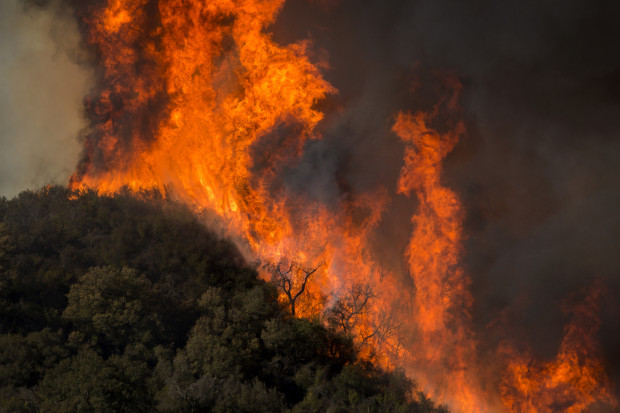- The Impact of the Palisades Wildfires & How FilterTime is Committed to Improving Air Quality and Helping Affected Communities
- How to Reduce Indoor Air Pollution During Home Renovations
- Seasonal Air Filter Guide: How to Choose the Best Filter for Each Season
- Top 10 Air Filter Maintenance Mistakes Homeowners Make
- Three Reasons To Consider Adding A Filter Delivery Service To Your Resident Benefits Package

Wildfires have become an increasingly frequent and devastating environmental crisis, particularly in regions prone to dry conditions, high winds, and rising temperatures. While the immediate dangers of wildfires are often discussed in terms of evacuation and outdoor safety, the effects on indoor air quality are also a growing concern. Smoke, particulate matter, and toxic gases can infiltrate your home. Understanding how to protect your indoor air quality during wildfire season is crucial for safeguarding the health of you and your family.
How Wildfires Impact Indoor Air Quality
When a wildfire occurs, it produces a large amount of smoke that contains tiny particles called PM2.5 (particulate matter smaller than 2.5 micrometers in diameter), as well as carbon monoxide, volatile organic compounds (VOCs), and other harmful gases. These pollutants can travel for miles and enter your home through open windows, doors, ventilation systems, and even small cracks. The fine particulate matter is concerning because it can potentially exacerbate respiratory issues.
In addition to respiratory risks, wildfire smoke can impact allergies, eye irritation, and even cognitive function. This makes it important to take action to protect the air inside your home when wildfire smoke is nearby.
5 Ways to Protect Your Home’s Indoor Air Quality During a Wildfire
- Seal Your Home’s Windows and Doors
One of the most effective ways to keep wildfire smoke out of your home is to tightly seal any openings. Close windows, doors, vents, and any gaps where air could be leaking in. Use weather stripping or draft blockers on doors, and cover windows with heavy-duty plastic sheeting if needed. Pay particular attention to areas around air conditioning units or exhaust fans, as these can be sources of smoke infiltration. - Create an "Indoor Clean Room"
If you’re caught in an area with persistent smoke, consider designating a small, internal room as a "clean room" where the air quality is less compromised. - Use High Quality Pleated Air Filters: In times of poor air quality, it’s especially important to change your HVAC filters more frequently. This helps maintain the efficiency of your air system, ensuring that it continues to capture harmful particles and provide clean, breathable air.
- Keep Air Conditioners on Recirculate Mode
If you’re using an air conditioner, set it to "recirculate" mode rather than bringing in fresh outside air. Air conditioners with a fresh-air intake will pull in smoke from outside, worsening indoor air quality. By switching to recirculate mode, the air conditioning system will only circulate the air inside your home, helping to prevent additional pollutants from entering. If your system has an air filter, make sure it’s a high-efficiency model and replace it regularly. - Avoid Indoor Pollutants That Can Make Smoke Worse
During a wildfire, you should avoid activities that could further degrade indoor air quality. This includes burning candles, using wood stoves, smoking indoors, or using harsh chemical cleaners. Instead, focus on keeping your indoor air as clean and pollutant-free as possible.
Bonus Tips: Keep Your Health in Check
- Monitor Air Quality Levels: Use local air quality apps or websites to keep track of smoke levels and particulate pollution in your area. Many public health agencies offer updates on wildfire smoke conditions.
- Stay Indoors When Possible: When air quality is poor, it’s best to stay indoors as much as possible, especially if you have children, elderly family members, or anyone with respiratory conditions.
- Stay Hydrated: Wildfire smoke can dehydrate your body, so drink plenty of water to help keep your respiratory system functioning properly.
Conclusion
Wildfires may seem like an issue confined to the outdoors, but the smoke and pollutants they generate can pose serious risks to your indoor air quality. By taking proactive steps like sealing your home, using air purifiers, frequently changing your air filters, and keeping your HVAC system on recirculate, you can help mitigate the health risks associated with wildfire smoke.
Don't hesitate to contact us here with any questions you may have. Our team can help you customize your order and get you set up. Start shopping for air filters here.
« Back to News





